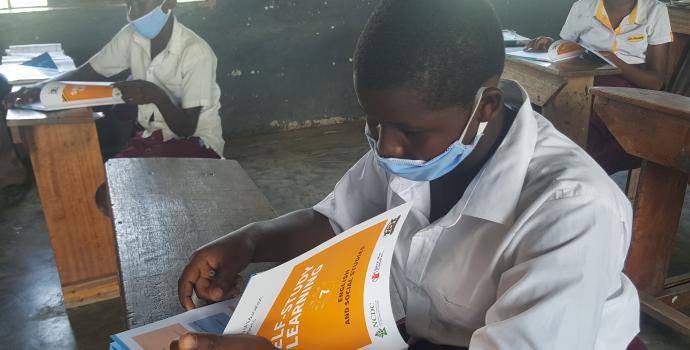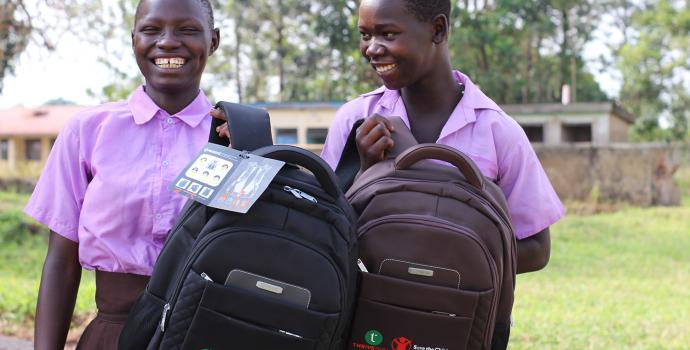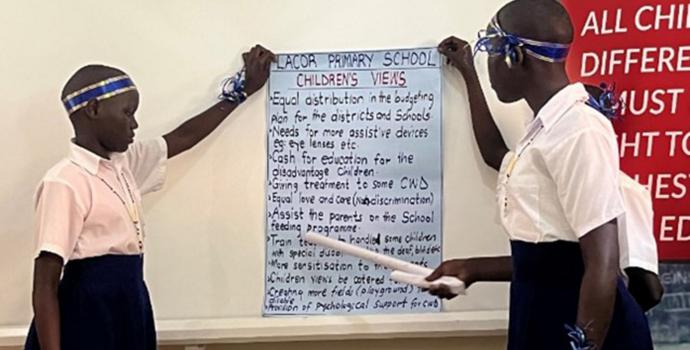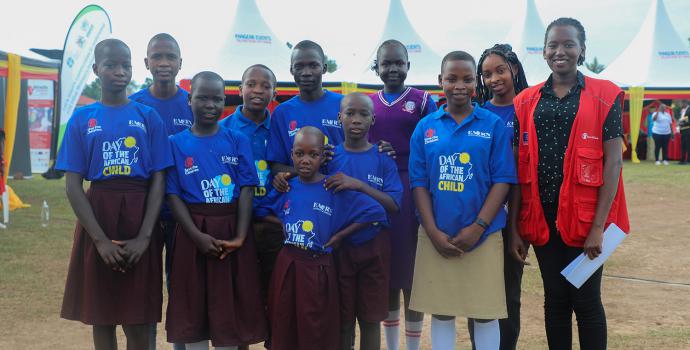Schools must be safe for children to learn, say child rights organisations

A joint statement by six child rights organisations
The Ugandan government, communities, teachers and parents must ensure schools are made safe from violence against children, say the Joining Forces Coalition. The call comes as Uganda prepares for full schools re-opening across the country.
While the Coalition applauds the government’s decision to reopen schools for all children, which is a necessary measure to ensure the holistic wellbeing of children who have seen the school routine broken for more than a year, it is concerned that the issue of violence against children in schools is yet to be addressed.
Violence against children is on the rise within homes, communities and schools in Uganda. This includes sexual, physical, and emotional violence, from which children have little or no protection at the current time, and which has direct negative effects on their growth and development.
According to the 2018 Violence Against Children Nationwide Survey; three out of four Ugandans experienced violence in their childhood. Among 18-24-year-olds interviewed, one in three girls and one in six boys reported experiencing sexual violence during their childhood. The report further illustrates that more than half of all children in Uganda have experienced physical abuse.
Child victims of violence can suffer a wide range of negative effects including maiming, teenage pregnancy, Sexually Transmitted Diseases, dropping out of school, and death. Violence against children is also cyclical in nature, with children who have suffered violence more likely to experience violence as adults or become violent themselves.
The outbreak of the COVID-19 Pandemic and the measures to contain its spread, highlighted the weaknesses in the country's efforts to protect children. Uncertainty and prolonged periods of confinement at home led to an increasingly stressful environment exposing children to violence and abuse. A 2020 Save the Children report found that children were increasingly vulnerable and at risk from an increase in violence and abuse, stress, poverty, and hazardous coping strategies such as child labour and marriage.
Sixteen-year-old Noeline, shared in a 2020 World Vision study that:
“Family disputes amongst parents force children to leave home and enter into marriage”.
Similarly, in a 2020 Joining Forces survey,40% of caregivers surveyed said they expect an increase in teenage pregnancy during lockdown. The surge of teenage pregnancies and child marriages highlighted in various reports in Uganda today is testament to this prediction.
The Coalition acknowledges the protective environment schools provide to learners; however, research reveals that schools in Uganda are not entirely violence free. According to the 2018 Violence against children survey, 94% of girls and 86% of boys who have experienced physical violence first suffered it at the hands of a teacher. The survey also cited teachers as the most frequent perpetrators of violence against children. We anticipate that the change in school calendar and shorter school terms, coupled with the loss of learning in the past year, may cause pressure on teachers to ensure children perform and catch up quickly with the syllabus, which could lead to negative forms of disciplining such as corporal punishment.
In order for children to thrive in their learning, teachers, government and parents/caregivers must make schools and communities safe for children. Children behave and learn better when they feel safe, supported and unafraid.
Preventing violence in childhood and providing services for those at risk or survivors, results in positive outcomes for children’s wellbeing. In so doing, we provide the foundation for improved growth of communities and societies.
- The Coalition charges teachers to use ‘positive discipline’ approaches in schools instead of corporal punishment. Ministry of Education and Sports, should instruct and hold schools accountable to end corporal punishment and other forms of violence against children through a directive.
- The ministry should urgently revise the guidelines on teenage pregnancy and re-entry to provide for a more supportive environment in schools and communities so that girls and boys stay in school.
- Parents, caregivers and communities should discourage teachers from using corporal punishment and protect children from all harmful practices. They should ensure the home and community environment is safe and secure.
- Government should ensure adequate financing of child protection systems and mechanisms by prioritizing the functionality of formal child protection structures within communities, including schools.
- Ministry of Gender, Labour and Social Development needs to prioritise the generation of data on violence against children to cover child protection evidence needs for programming, service response and the development of long-term solutions.
About Joining Forces Coalition
The Joining Forces coalition is a global alliance of six of the world’s leading child rights organisations: Child Fund, Plan International, Save the Children, SOS Children’s Villages, Terre des Hommes and World Vision. The coalition members build on years of experience addressing violence against children in Ugandan schools and coordinate closely with other key influencers including government departments, national NGO networks, teachers’ unions and religious bodies, and complement existing work by development actors at the policy level.




